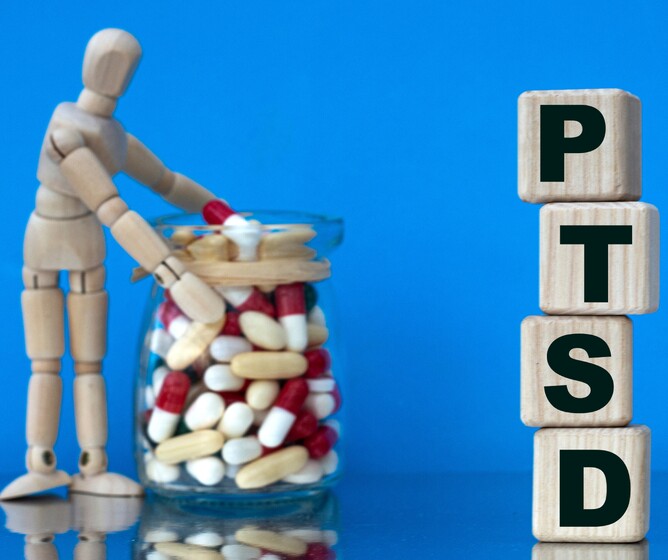Coping Strategies and Self-Care Techniques for Managing PTSD Symptoms
Post-Traumatic Stress Disorder (PTSD) is a mental health condition triggered by experiencing or witnessing a traumatic event. Its impact on daily life can be profound, affecting a person’s emotional well-being, relationships, and overall quality of life. Managing PTSD symptoms requires a combination of coping strategies and self-care techniques, which can help individuals regain control and improve their mental health. This blog aims to provide practical strategies and self-care techniques for those living with PTSD.
Understanding PTSD
PTSD is characterized by a range of symptoms that can include flashbacks, anxiety, irritability, hypervigilance, and sleep disturbances. These symptoms can be debilitating, making it difficult for individuals to function in their daily lives. PTSD can develop after experiencing or witnessing events such as military combat, natural disasters, accidents, or personal assaults. Risk factors include a history of trauma, lack of social support, and pre-existing mental health conditions. It is crucial for individuals with PTSD to seek professional help and support. Therapy, medication, and support groups can provide the necessary tools and guidance to manage symptoms effectively.
Coping Strategies for PTSD
Grounding Techniques: Grounding techniques are designed to help individuals stay present and manage flashbacks. These methods can include focusing on the surrounding environment, engaging the senses, or performing simple physical tasks like clenching and unclenching fists. By redirecting attention to the present moment, grounding techniques can reduce the intensity of traumatic memories.
Mindfulness and Relaxation: Practices such as deep breathing, meditation, and progressive muscle relaxation can be highly effective in managing anxiety and stress. These techniques help calm the mind and body, promoting a sense of peace and control. Regular mindfulness practice can also improve emotional regulation and resilience.
Cognitive Behavioral Strategies: Cognitive Behavioral Therapy (CBT) focuses on identifying and challenging negative thought patterns. By reframing these thoughts, individuals can reduce the power they have over their emotions and behaviors. CBT techniques can be practiced with the guidance of a therapist or through self-help resources.
Social Support: Connecting with loved ones or support groups can provide emotional support and reduce feelings of isolation. Sharing experiences with others who understand what you’re going through can be incredibly healing. It’s important to build a network of people who can offer encouragement and a listening ear.
Sleep Hygiene: Sleep disturbances are common in PTSD, making sleep hygiene practices essential. Tips for improving sleep quality include establishing a regular sleep schedule, creating a calming bedtime routine, and limiting exposure to screens before bed. Good sleep hygiene can significantly improve overall well-being and reduce the severity of symptoms.
Self-Care Techniques for Managing Symptoms
Routine and Structure: Creating a daily routine can provide stability and predictability, which are often comforting for individuals with PTSD. A structured day helps reduce anxiety and allows individuals to feel more in control of their lives.
Healthy Lifestyle Choices: Balanced nutrition, regular exercise, and adequate sleep are foundational to mental and physical health. These lifestyle choices support overall well-being and can help reduce the severity of PTSD symptoms.
Creative Outlets: Engaging in creative activities such as journaling, art, or music can be therapeutic. These outlets allow individuals to express emotions and experiences that may be difficult to articulate verbally.
Setting Boundaries: Learning to say no and protect personal energy is crucial for managing stress. Setting boundaries helps individuals avoid situations that may trigger symptoms and allows for the preservation of mental and emotional health.
Seeking Professional Help: It’s essential to recognize when additional support is needed. Therapy and professional guidance can provide the tools and strategies necessary to manage PTSD effectively.
Conclusion
Managing PTSD requires a holistic approach that includes coping strategies and self-care techniques. By incorporating grounding methods, mindfulness practices, social support, and healthy lifestyle choices, individuals can take proactive steps towards improving their mental health. Remember, it’s essential to seek help and adopt these strategies to enhance your quality of life.
Holistic Strength is dedicated to supporting individuals on their path to healing and well-being. Our team of professionals offers a range of services to address the physical, emotional, and mental aspects of PTSD. Contact us today to learn more about our programs or to schedule a consultation.
